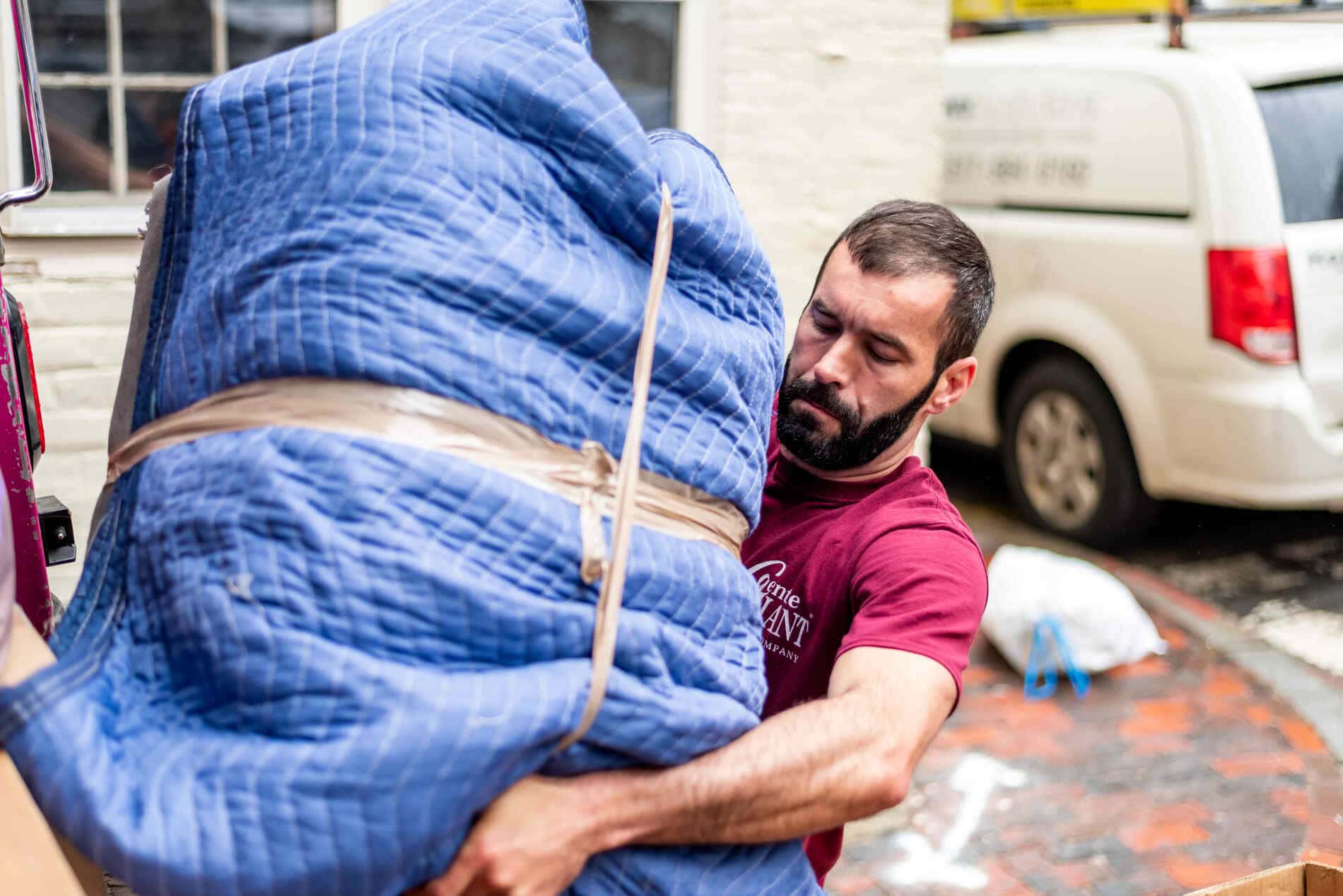
Choosing the right moving company for you can be hard work, but the payoff is more than worth it. Rogue movers and scam artists are plentiful and there is no shortage of negative moving experiences. Several common negatives that arise from hiring the wrong moving company include: overcharging, goods being held hostage, lost or damaged property, movers arriving late, or failing to show up entirely…the list goes on! Although the prospect of finding a reputable moving company may seem daunting, the moving experts at Gentle Giant have compiled a list of 10 key steps you can take to simplify the process.
10 Steps to Follow when Choosing a Moving Company
- Get Referrals
Kickstart your research by chatting with people you trust. Get recommendations from friends, family members, or co-workers who have previously moved. Their personal experiences are much more reliable than online reviews and will give you peace of mind going forward. If you are working with a real estate agent then ask them for a referral. They will have an unmatched level of knowledge about the moving industry.
- Hire a Local Moving Company
By hiring a locally known and respected moving company, you will avoid the risk of being duped by an online scam or a deceitful company operating solely over the internet. Additionally, you are more likely to know of neighbors, friends, or co-workers who have previously used the local moving company for their move and who can verify their reliability.
- Read Reviews
If you cannot get referrals from friends or family, fear not. Although recommendations from those you know and trust are preferred, you can find a plethora of information across the internet on moving companies. Type ‘moving companies near me’ into your browser to discover a list of companies operating in and around your area. Once you have gathered several options, check out their reviews on platforms like Google, Yelp, and Facebook.
Pro Tip: Focus your research on moving companies with a rating of 4+ stars out of 5. Then dive deeper into these companies by reading reviews left by customers. If the company has received a negative review, take note of how they address this review in their reply. While moving is an unpredictable experience and damages can occur, how the company handles these negative situations can be very telling of their level of professionalism. - Research Complaints
After you have gathered several moving company options, read the complaints they have received from previous customers. While conducting your research take note of the number of complaints. A high volume is an immediate red flag. You can use the search tools provided by the Better Business Bureau, or platforms like Google, Yelp, and Facebook to discover a catalog of complaints.
- Check with the Better Business Bureau
Use moving companies that are Better Business Bureau accredited or that have a high BBB rating. The Better Business Bureau is a non-profit organization dedicated to helping consumers in the United States, Canada, and Mexico find businesses that they can trust. The BBB website contains many useful resources for those researching the reliability of service providers. Where possible, avoid using companies with a rating lower than B.
- Verify the Company’s Credentials
All licensed interstate movers must have a DOT number issued by the U.S. Department of Transportation. Additionally, the mover must have a carrier number from the Federal Motor Carrier Safety Administration. You can verify the company’s license through the FMCSA’s website and their U.S. DOT number via the mover’s website or on request.
- Get more than One Estimate
Before you make your final decision, be sure to shop around. It is recommended to get estimates from at least three different movers to ensure you are getting the best value. Many companies will give you the option of requesting an estimate via an online form or over the phone.
- Look out for Red Flags
During your search for a reputable moving company, keep an eye out for several red flags. If you receive an extremely low estimate from one company compared to others then it may be too good to be true. Additionally, do not hand over your money where a moving company requests a large deposit upfront. Oftentimes you will not be required to pay any money until your items have been moved. However, in cases where you are expected to, the mover should not demand a deposit of more than 20% of the estimated cost of the move. In cases where you have an in-person estimation, note the mover’s level of professionalism. Ask yourself if he appears knowledgeable and whether or not he can confidently answer your questions.
- Compare your Estimates
While you may be tempted to accept the lowest estimate you are quoted, it is imperative that you go over all of the details before making a final decision. Ensure that any large or specialty items you have like a couch, artwork, or a piano, are accounted for. You should also confirm the protection of your valuables, or lack thereof. All moving companies will provide a basic limited liability insurance at no additional cost. However, this type of protection is minimal as it only covers up to $0.60 per pound. Alternatively, you can purchase full-value protection whereby your mover is liable for the replacement value of damaged or lost goods in the entire shipment.
- Request a Binding Estimate
For long-distance moves it is critical to request a binding estimate. This type of estimate guarantees that you will not be charged more than the amount quoted by the moving company. Gentle Giant offers a binding price for your move once they have taken an inventory of all of your belongings, as well as estimated a timeframe for delivery.
Are you planning a local or long-distance move? Hire professional movers like Gentle Giant to take away the stress of the move! Check out our moving checklist for further information on how to prepare for your move and use our free move estimate tool to determine the cost of your move. Additionally, you can view our locations, and the various services we offer including packing, piano moving, and more here.

